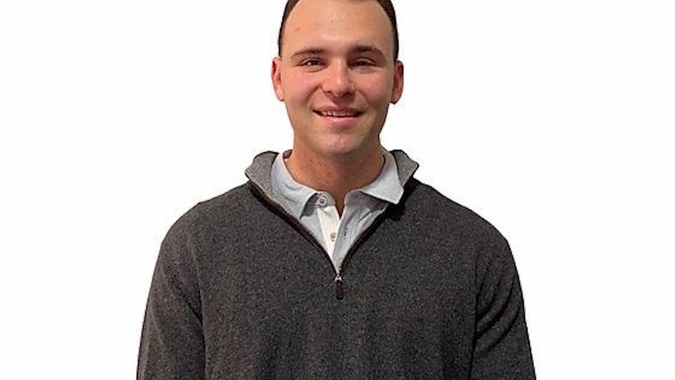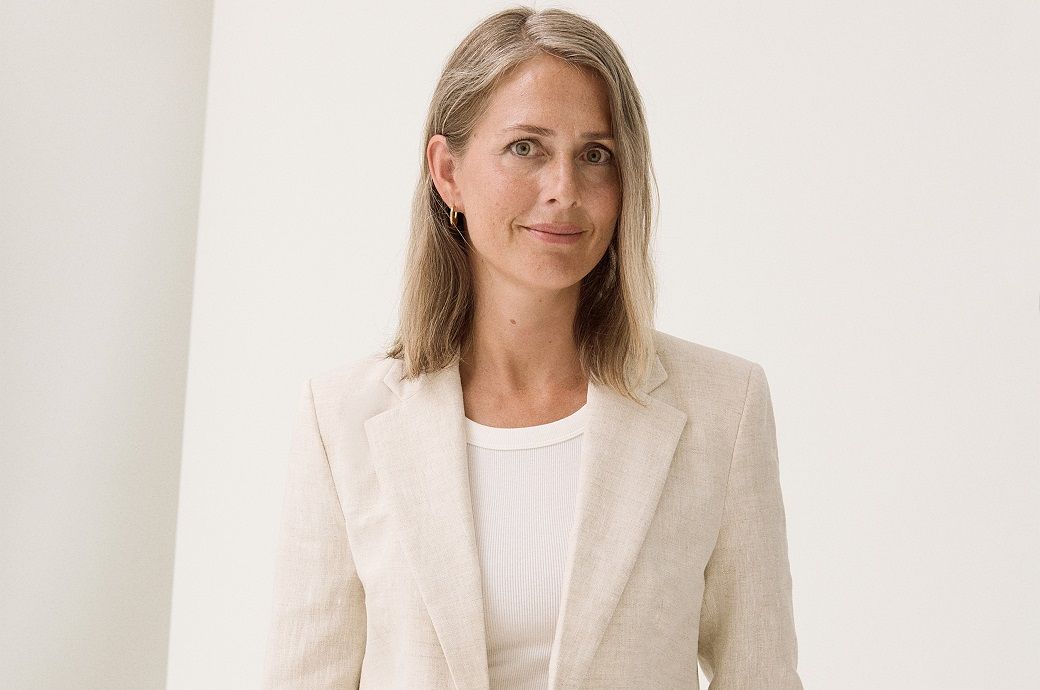Opinions expressed by Entrepreneur contributors are their own.
What hits you first when you meet Aaron Golub is his confidence. It’s the confidence that comes from being the world’s first legally blind NCAA Division 1 football player and an NFL free agent. It’s the confidence that comes from being (literally) blindsided on the field over and over again and finding the strength to get back up. It’s the confidence that comes from learning how to snap a football 15 yards without being able to see your receiver and hit them perfectly in the hands.
Golub has spent his life proving the doubters wrong. He not only made the Tulane University football team but he was also named a captain in 2018. While athletics will always be a part of his life, he’s now turned his focus to entrepreneurialism as a financial advisor and motivational speaker, addressing audiences across the country, from professional sports teams to Fortune 500 companies.
We caught up with Golub to discuss lessons he’s learned and how the rest of us can find the confidence we need to make the “impossible possible” in business and life.
So how did you begin your football career?
 Aaron Golub
Aaron Golub
I wanted to play football in seventh grade. My parents were definitely nervous, but they allowed me to do it. And I was horrible. You know, I was not athletic. I was a third-string guy for several years.
How did you get better?
During my sophomore year, I woke up at 5 a.m. every day, went to practice long snapping, went to class, went to team practice, lifted weights every single night after school, and did that every single day for the next three years. I just understood I had to work 10 times harder than everyone else just to be as good as them, and that required me to do things that no one else was willing to do to accomplish my goal. I was willing to put in those reps for long snapping, and I did it 10,000 times. When I released the football off my hands in college, I could tell you if it was going to hit the punter on the right hip, the left hip, shoulder, head or the stomach. It’s a really good lesson for life and for business because the people who win in business are the ones who do the boring, repetitive tasks over and over and over again. And if you’re willing to do even the things you don’t want to do, and you consistently do them, you will win.
Related: An Inspiring Discussion With Simon Sinek About Learning Your ‘Why’
What did people think of you at first?
I think most people thought I was ridiculous. Most people thought that I could never do it, and that’s fine. I love that type of stuff. Because I was able to prove those coaches, those teams, those individuals wrong. But the people who were close to me the people who saw my work ethic, the people who saw what I was doing on a daily basis – they knew that I would accomplish something great one day.
So were you motivated to prove them wrong?
No, I was never motivated to prove people wrong, I was motivated to prove myself right. When you’re trying to prove someone wrong, you’re focusing on the wrong motivators. And I think so many people rely on these external motivators, and that’s the wrong way to think of things. If you think of external motivators, what you’re thinking of is something that can allow you to achieve something in a short span of time. So if I go to the gym, and I want to squat 500 pounds, I’m going to think of something that’s going to piss me off, that’s going to make me want to prove someone wrong in that 30-second timeframe. But that’s exactly how long it’s going to last – 30 seconds. It’s not going to last a week, a month, a year, or 10 years.
You have done a lot of events speaking. Was there a specific moment that made you feel like your story and your experience could inspire others?
Yeah, I think really the most impactful one was when I was at Tulane. A child’s mother reached out to the coaching staff to try and get in touch with me and her son was dealing with some health issues, specifically a form of cancer that was causing him to really lose his vision. And my coach sat me down and talked to me about it and we brought them to campus. I showed them around the facilities, the football stadium, the weight room, the locker room, I sat down and talked with them. It was a really great afternoon and the fact that I was able to really make an impact on that kid and his life is really incredible to me.
That must be an amazing feeling.
Absolutely. And that’s honestly one of the most rewarding things. You know, if anyone is reading this, and I’ve impacted them in any way or if I can help them in any way send me a message on Instagram or Twitter or email me at aaron@arrongolub.com. If I’ve impacted you and helped you in any way I love hearing those types of stories.
Related: 7 Inspiring Traits of Compassionate Leadership
Are there any particular heroes you look up to?
I think that heroes and terms like that get thrown around a lot. Take someone like Tony Robbins. I definitely look up to him. I think he’s a phenomenal entrepreneur and speaker, but would I consider him a hero to me? No, because if you consider someone a hero, if you want to be the next Tony Robbins, the world doesn’t need that. The world already has a Tony Robbins. What the world needs is a great Aaron Golub. I look up to Tom Brady. I’m a Patriots fan. I think he’s the best quarterback of all time, but he’s not a hero of mine. Can I learn some principles, some things that he did that I can take into my own life? Yeah, absolutely. But I’m never going to be the next Tom Brady. I’m never going to be the next Tony Robbins. What I am going to be is Aaron Golub. And I’m going to accomplish great things with my own name with who I am.
You’ve been through a lot. What do you consider “tough?”
Look, everyone has their own challenges and obstacles. Everyone’s challenges are unique to them. The things that are hard for me, everyone else probably thinks they’re super easy. The hardest things in my life are the small things that no one thinks of. Crossing the street is incredibly hard for me. Making sure I don’t get hit by a car, cooking dinner, making sure my chicken is done, walking down the street and making sure I don’t run into a pole, or into another person. Those things are hard for me.
What’s the biggest business lesson you’ve taken from your football experience?
It’s consistency. In football, I had to be consistent every single day to achieve success. There are a lot of people out there who have shiny object syndrome. They work at something for three weeks and then quit because they’re not achieving their goal. Three weeks? Talk to me in three years. Be consistent every single day, do the outreach, do the marketing, do what you need to do. But so many people in this world of entrepreneurship have an idea that might be a really good idea, and they do it for three weeks, and they don’t see any results and they give up and go on to something else. And then they give up that idea, whereas if they stuck with the first thing, a year later they might have made a million dollars.
Do you have a message for those of us facing challenges in our lives and our businesses?
Yeah, literally anything is possible. Don’t get stuck in your head. Don’t overthink it. If you want to accomplish a goal, be the hardest working person in the room. Be the most creative person in the room. Don’t listen to anyone else’s opinion except your own. If you truly believe that you can do something, if you truly believe that you’re here to do something special which we all are, you can do it. Trust that the impossible is possible.

:max_bytes(150000):strip_icc()/Health-GettyImages-1463319962-8cd36551dfb64dc49fa1bbfbc843bc40.jpg)


